Choosing Your Business Model: Employee or Independent Contractor

A business model is best described as a schematic that defines all of the working features, components and capabilities that will drive the business. If you want your business to deliver consistent quality and growth potential, those elements must be built into its business model. If you want your business to deliver flexibility with minimal management oversight, those elements must be built into that business model. Just like a Ford F-150 truck will never perform like a Ferrari 488 GTB, a business model can only perform the functions it was designed to deliver. A McDonalds will never perform to the standards of a Chef Gordon Ramsey restaurant.
An independent contractor (booth rental or suite) business model will never perform like an employee-based business model. The two business models are diametrically opposed and, by design, conflict with each other. The employee-based model generates revenues through a coordinated process of delivering services and products to the company’s customers. The independent contractor model generates revenues through rental fees collected from independent contractors that service their own customers, add-on services for independent contractors and potential retail sales.
For the record, Strategies supports, coaches and provides training for the employee-based business model. Why? Because the employee-based business model offers unlimited growth opportunity for both employees and owners ... if they master the leadership and systems the model requires. We don’t have anything against the independent contractor business model other than the fact that its revenue is rent-based and therefore extremely limited in growth and resale value potential.
Here are some No-Compromise Leadership insights in understanding and selecting the right business model for your company:
- To lead or not to lead: All service businesses are labor intensive. Employees need to be lead. Employees need to be trained and developed. Employees need structure, systems, feedback, inspiration and accountability. If these requirements get you excited and you’re up for the challenge of leading and growing a company, choose the employee-based business model. If any of these requirements turn you off, choose the independent contractor business model.
- Build a brand or build a mall: Building a viable business is really about building a recognizable company brand that separates you from the competition. Your brand defines what your company stands for. Your brand defines your commitment to quality. Your brand defines your company’s promise to its customers. When renting space to independent contractors, the only control you have over your brand is location, the physical space, décor and how selective you are to those you rent space to.
- Employee headaches vs. renter headaches: Many owners that turn to the independent contractor business model do so to eliminate employee headaches including people management, payroll tax liabilities and the need to hire and fire. Well guess what? Renter headaches simply replace employee headaches. Some renters don’t show up. Some renters don’t know how to keep their space clean. Some renters just don’t fit in with other renters and, just like firing an employee; you need to terminate their lease. And there are renters that don’t pay rent on time or get so far behind in their rent that it causes cash-flow problems for the business. Each business model brings its own collection of people headaches.
- Build people or collect rent: Hiring and developing service employees into productive team contributors is the work of leadership. Sure, every now and then you hire a clunker ... but for the most part, you are a key player in coaching and guiding employees on their career path. Do your job well by creating a dynamic team-based culture, and those employees will give many years of service in return. For leaders, there is no greater joy than seeing the career process unfold. If this excites you, choose the employee-based business model. If this does nothing for you, choose the independent contractor business model.
- Ensure quality and service experience or “it’s not your problem”: By design, employee-based businesses have to ensure the quality execution of services and customer service experience. Investing in training for skill-certification and customer service development is non-negotiable. Performance standards, like monitoring first-time and existing client retention rates, pre-book and re-book percentages and product recommendations, are non-negotiable. Daily huddles, performance reviews, mentor programs and the like are all non-negotiable. If you don’t want any of this to be your problem, choose the independent contractor business model.
- Customer database vs. tenant list: One of the most valuable assets a service business has is its customer database. In an employee-based business model, there is one, and only one, customer database ... and that lives in the company’s computer system. In an independent contractor business model, independent contractors own their customer list. The business has no right or claim to the independent contractors’ customer list. Therefore, the only list the business has is its tenant list. The value of a tenant list pales in comparison to the value of a company’s customer database. If you’re satisfied with the value of tenant list, choose the independent contractor business model.
- IRS and defining worker status: The key word in “independent contractor” is independent. Independent contractors, or those who rent or lease space from the business, are not employees and cannot be treated or managed in any way whatsoever like an employee. You cannot classify workers as “1099 independent contractors” and set work schedules, performance standards or any other trappings of an employee-based business simply to avoid payroll taxes. You cannot lease space to workers and exercise any control over how and when they work. There is no legal loophole in the tax or labor laws that will allow a business to treat and manage workers like employees while avoiding payroll taxes. If your lease/rental business is really a not so cleverly disguised employee-based business, the tax, penalty and interest costs can and will be devastating.
- Value when it’s time to get out: The employee-based business model most certainly is more complex and more work than the independent contractor business model. As stated earlier, the employee-based business model offers unlimited growth opportunity for owners ... if owners master the leadership and systems the model requires. Growing a recognizable brand, growing a true team-based/employee-based culture, growing a customer database, managing an impressive and healthy Balance Sheet ... and generating predictable revenue and net profit ... builds a resale value that will far exceed any potential resale value of a rent-based business. If you’re fine owning a business that has limited resale value potential, choose the independent contractor business model.
Exclusive Report: Rental Realities
The employee-based and independent contractor business model is a hotly debated and emotional topic. To bring perspective and clarity to the subject, Modern Salon developed an exclusive report entitled “Rental Realities.” It is one of the best and incredibly balanced reports ever prepared. I urge all owners, potential owners, employees and independents to read the report. Here is the link: modernsalon.com/rental
- - - - - - - - -
Please share your thoughts with me about today's Monday Morning Wake-Up. Click below to comment.
Pass this e-mail on to your business colleagues, managers and friends. They will appreciate it.








Comments (1)
The knowledge and skills acquired through contractor courses USA empower general contractors to deliver projects that exceed client expectations and industry standards.
Posted By: Cesar•April 12th 2024, 7:24:00 pm
Leave a Comment